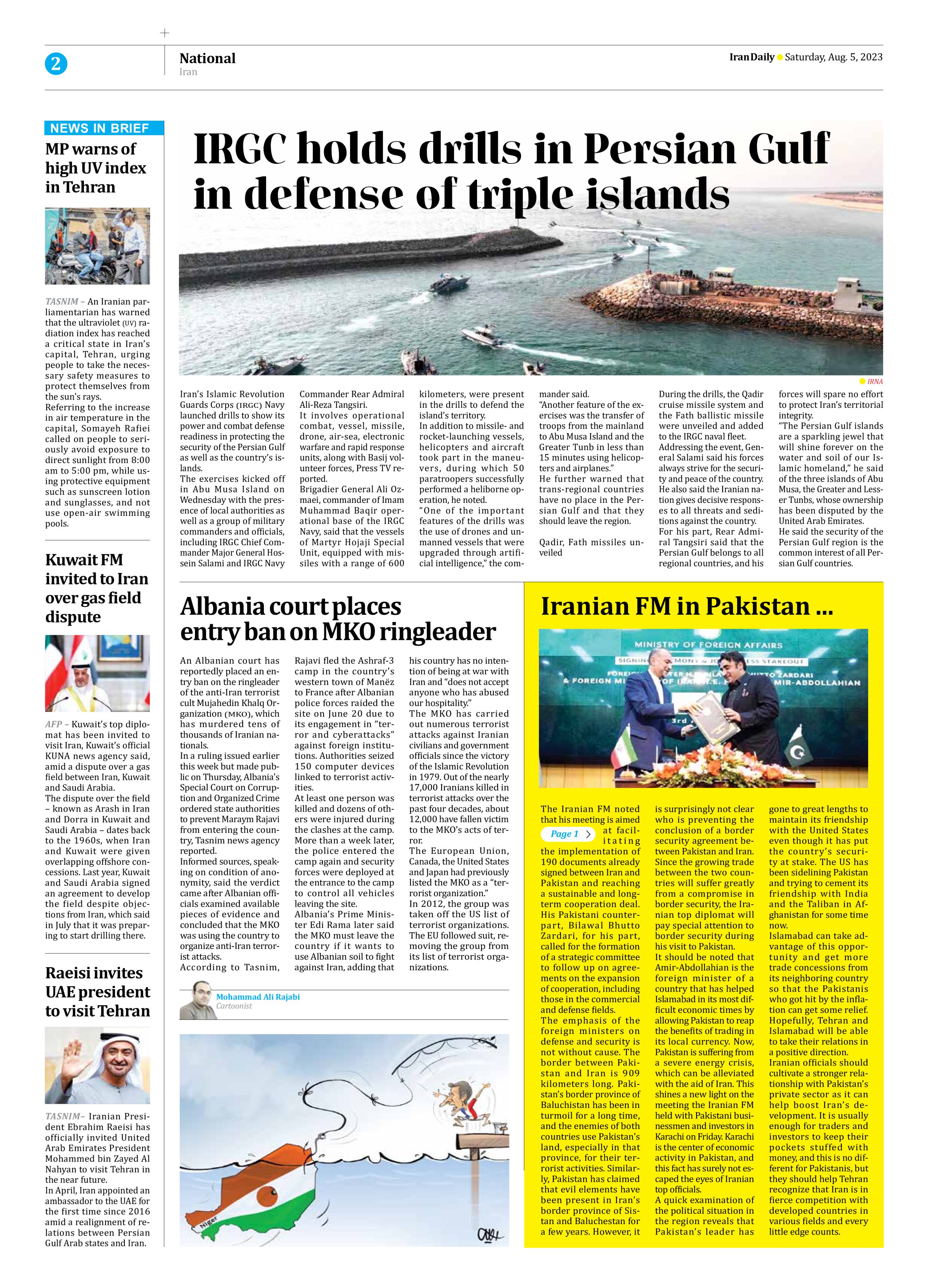
Iranian FM in Pakistan ...
Page 1
The Iranian FM noted that his meeting is aimed at facilitating the implementation of 190 documents already signed between Iran and Pakistan and reaching a sustainable and long-term cooperation deal. His Pakistani counterpart, Bilawal Bhutto Zardari, for his part, called for the formation of a strategic committee to follow up on agreements on the expansion of cooperation, including those in the commercial and defense fields.
The emphasis of the foreign ministers on defense and security is not without cause. The border between Pakistan and Iran is 909 kilometers long. Pakistan’s border province of Baluchistan has been in turmoil for a long time, and the enemies of both countries use Pakistan’s land, especially in that province, for their terrorist activities. Similarly, Pakistan has claimed that evil elements have been present in Iran’s border province of Sistan and Baluchestan for a few years. However, it is surprisingly not clear who is preventing the conclusion of a border security agreement between Pakistan and Iran. Since the growing trade between the two countries will suffer greatly from a compromise in border security, the Iranian top diplomat will pay special attention to border security during his visit to Pakistan.
It should be noted that Amir-Abdollahian is the foreign minister of a country that has helped Islamabad in its most difficult economic times by allowing Pakistan to reap the benefits of trading in its local currency. Now, Pakistan is suffering from a severe energy crisis, which can be alleviated with the aid of Iran. This shines a new light on the meeting the Iranian FM held with Pakistani businessmen and investors in Karachi on Friday. Karachi is the center of economic activity in Pakistan, and this fact has surely not escaped the eyes of Iranian top officials.
A quick examination of the political situation in the region reveals that Pakistan’s leader has gone to great lengths to maintain its friendship with the United States even though it has put the country’s security at stake. The US has been sidelining Pakistan and trying to cement its friendship with India and the Taliban in Afghanistan for some time now.
Islamabad can take advantage of this opportunity and get more trade concessions from its neighboring country so that the Pakistanis who got hit by the inflation can get some relief. Hopefully, Tehran and Islamabad will be able to take their relations in a positive direction.
Iranian officials should cultivate a stronger relationship with Pakistan’s private sector as it can help boost Iran’s development. It is usually enough for traders and investors to keep their pockets stuffed with money, and this is no different for Pakistanis, but they should help Tehran recognize that Iran is in fierce competition with developed countries in various fields and every little edge counts.







